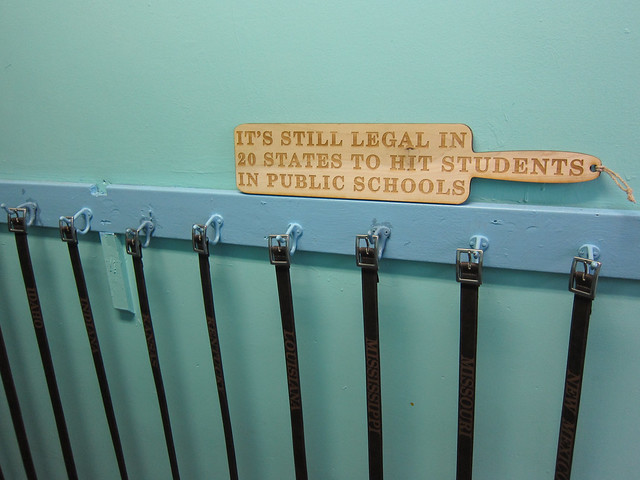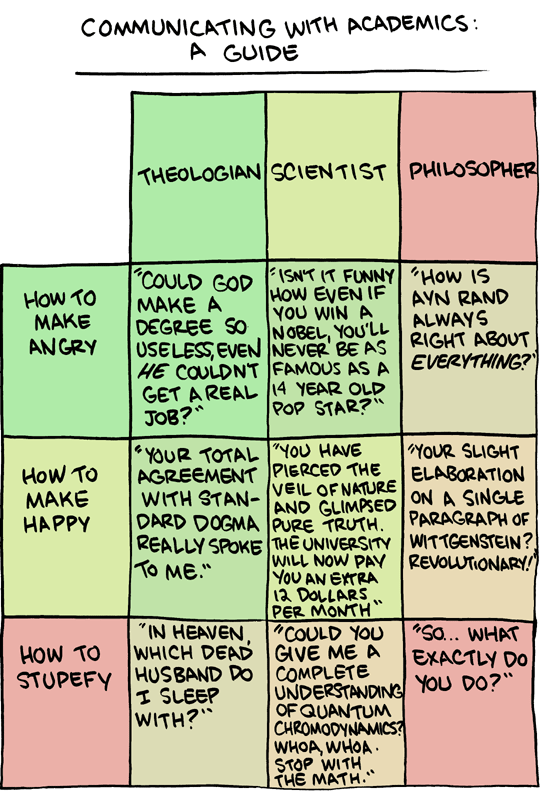The overwhelming majority of the class really liked the Team-Based Learning (TBL) project, but 5 or 6 didn't. As a whole the classes succeeded, but there were issues of ineffective group dynamics and missed deadlines. Last semester I ran the TBL unit later in the semester, after a tour of the Nerman and perhaps more direct discussions of the relationship of composition in art and media to college composition classes. There hasn't been trouble connecting the project to the goals of the class in the past.
There seems to be more misunderstandings due to errant expectations this semester. We need to review how college is different from High School (see
link for the brilliant comparison contrast by SMU). We had a quiz over this the first week. For example
Professors may not follow the textbook. Instead, to amplify the text, they may give illustrations, provide background information, or discuss research about the topic you are studying. Or they may expect you to relate the classes to the textbook readings....Professors expect you to think about and synthesize seemingly unrelated topics.
It surprised me that several students said they didn't learn anything about composition from the TBL project. That was on the rubric as a goal.
High schoolers read short assignments, and can expect the teacher to cover the homework and explain it. In fact many don't need do assigned readings, but will expect the teacher to correct or explain missed homework. In college the onus is on the student.
Also, high school teachers will remind you when you don't turn in work, and when assignments are due. That's not the expectation of a college teacher. I have been doing this, but it seems wrong and unfair because 5% of the students take up almost 50% of my time and cause 85% of the aggravation. And it bothers me that some students who appear to be struggling haven't come to see me, even when I ask them to. The SMU site goes on to say:
[In High School] teachers approach you if they believe you need assistance. [While college] professors are usually open and helpful, but most expect you to initiate contact if you need assistance.
Also
[High School] teachers are often available for conversation before, during, or after class. [But college] professors expect and want you to attend their scheduled office hours.
Composition classes are gateway classes. Much of what we teach in Comp 1 is really academic readiness or life skills. In
Mary Sherry's "In Praise of the F Word," she argues that for real learning to happen, failure has to be an option. This may not happen in high school if you show up most of the time, but it the work world, and in college failure happens and we learn from it.
3 people complained that they did too much of the work, and that it caused resentment or friction. Comments made by others in their groups lend credibility to their concerns. Because these were students identified by their teammates as leaders and hard workers, it rings true. Several of the harder working students complained that people in their group "goofed around on the computer" during class instead of staying on task and getting work done in the classroom. This is the first time I've run this project in a full computer lab. This bears study.
Most groups had problems meeting outside of class and this caused friction, which interests me because I instructed for all work to be done on campus during scheduled class time. Groups made inappropriate use of classtime, assuming they could meet outside of class. This happened last semester too. I talked about it in class.
Several groups didn't submit readable/viewable video. I offered use of my camera - no one said they needed it.
1/3 said the amount of time was appropriate, and 1/2 said they needed more time. Many of the people who said the amount of time was appropriate (or in one case too long) come from groups that didn't produce functional video and missed other deadlines.
At the begining of the semester we did an icebreaker where we chose what we would be if we had to be reincarnated. I disproporianate number of both my classes chose power-dominant images. In the decade or more I've been doing this icebreaker I've only had this many power-dominant images chosen twice. Both times it was a challenge to teach the class, but in one case the class experience was ultimately one of the most rewarding teaching experiences I've had.
 Photo courtesy of The Laughing Squid. I see Kansas represents in the negative reinforcement (and Missouri - click to enlarge image - we are next to Kentucky).
Photo courtesy of The Laughing Squid. I see Kansas represents in the negative reinforcement (and Missouri - click to enlarge image - we are next to Kentucky).










